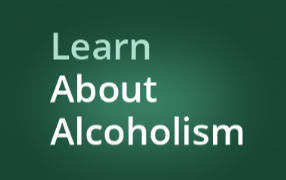Alcoholism Withdrawal
Alcoholism withdrawal is seen in people who have alcoholism and quit drinking suddenly. Alcoholism is a disease in which a person craves alcohol, feels unable to stop drinking, has built a tolerance to alcohol, and has become physically dependent on it.
Alcohol withdrawal is a serious condition that can occur when excessive drinking over a prolonged period of time is suddenly halted. This happens because the person’s body has become dependent on this substance in order to function normally.
The symptoms of alcohol withdrawal typically manifest between 6–8 hours after the person’s last drink and peak 1-2 days after.
How Dangerous are Alcohol Withdrawals?
Alcohol withdrawal can be very dangerous and even life-threatening if not treated properly.
On the other hand, if a person is in any way dependent on alcohol it means they already have a serious drinking problem and this dependency was most likely formed through the prolonged consumption of large amounts of alcohol over an extended period of time.
The best solution would obviously be to prevent alcoholism by never taking your first drink but once the alcoholic has started drinking regularly it becomes difficult for them to stop due to their dependence.
Symptoms of Alcoholism Withdrawal
The National Institutes of Health (NIH) reports that physical and psychological symptoms of alcoholism withdrawal can range from mild to severe/life-threatening.
The NIH’s list of moderate symptoms include nervousness, shakiness, anxiety, irritability or easy excitability, sudden emotional changes, headaches, fatigue, nightmares and problems thinking clearly.
Among the severe symptoms are fever, convulsions, black outs, delirium tremens (confusion and visual hallucinations), involuntary movements of the eyelids, hand tremors, nausea, abnormal loss of skin color, clammy skin, dilated pupils, and rapid heart rate.
In the beginning, alcohol enhances the effect of GABA, which is a neurotransmitter in the brain known for producing feelings of relaxation and calmness. When a person chronically abusing alcohol, the GABA start to become suppressed rather than enhanced.
It then takes more alcohol to produce the same feeling of enhancement. This is known as tolerance. This causes the body to function differently to adapt to the changes. When alcohol is suddenly stopped, the neurotransmitters are no longer suppressed and they rebound. This causes many physical and psychological effects.
In fact, alcohol withdrawal could be potentially fatal in cases where a person develops hyperactivity of the central nervous system (CNS) called delirium tremens (DT). Approximately 20% of people left untreated with this condition have died. Development of DT generally takes place 3-4 days after the last drink.
Sleep disturbances, mood changes and fatigue could last for up to twelve months or longer.
Whatever the degree of withdrawal symptoms, the NIH recommends calling a physician or taking the affected person to the nearest emergency room for diagnosis and treatment.

Getting Help for Alcohol Withdrawal
It is important to seek medical intervention when withdrawing from alcohol, particularly if the individual has abused alcohol over a long-term basis or has, on previous occasions, quit drinking after a period of heavy alcohol consumption. Go immediately to the emergency room or call 911 if dangerous symptoms are presented, including seizures, fever, delirium or severe confusion, hallucinations or irregular heart beat.
What can you expect to experience at the hospital? They may do any or all of the following:
- Manage symptoms by keeping you safe and comfortable and possibly administering medication
- Provide supportive care.
- Evaluate nutritional needs and hydration status
- Administer oxygen
- Closely monitor your vital signs
- Assessment of any potential medical conditions including heart problems, gastrointestinal bleeding, infection, liver disease, nervous system complications, or pancreatitis
- Run tests on blood and urine to assess alcohol and electrolyte levels
- Provide emergency or critical care if needed

The Next Step
Physiological (physical) alcoholism withdrawal is only the first step, although a very difficult one for many. The next step is psychological (mental and emotional) alcoholism withdrawal. Some of these symptoms include mood swings, anxiety, irritability, tiredness, nervousness, depressed mood, trouble concentrating, and sleep disturbances. This step requires re-teaching your mind and body how to live without alcohol such as learning new ways of coping with stress, new ways of relaxing, and new ways of having fun. Social interactions become different and new ways of managing people are needed.
Some tips for navigating this stage are:
- Be patient. It takes time. Alcoholism doesn’t develop overnight, and it doesn’t go away overnight.
- Take one day at a time. Do not think too far ahead. The priority is surviving today, not tomorrow.
- Practice self-care. Find other things in life that bring enjoyment whether it be outdoors activities, reading, sports, gardening, or something else.
- Get counseling. Learning the triggers for relapse and preparing for them is crucial in maintaining sobriety.
- Surround yourself with supportive people such as family, friends, and AA groups.
Conclusion:
Alcoholism is a long-term condition that requires changes in lifestyle and behavior. While there are many symptoms of physical withdrawal, the most dangerous symptoms occur during psychological withdrawal. Treatment for alcohol addiction is available at drug rehab centers around the country. Although recovery may be difficult, you can recover from alcoholism with the proper treatments and care.
The Time to Quit Alcohol is Now!
If you or a loved one is struggling with alcohol withdrawal, help is available. Contact a dedicated treatment provider today.
Related Information
Alcohol Withdrawal – Additional information about alcohol withdrawal symptoms including when to seek professional help.
Physical Effects of Alcoholism – Follow this link for more information on the effects of alcohol abuse. Treatment information and resources.
National Institutes of Health – Alcohol withdrawal.

I am a Mental Health Counselor who is licensed in both New York (LMHC) and North Carolina (LCMHC). I have been working in the Mental Health field since 2015. I have worked in a residential setting, an outpatient program and an inpatient addictions program. I began working in Long Island, NY and then in Guelph, Ontario after moving to Canada. I have since settled in North Carolina. I have experience working with various stages of addiction, depression, anxiety, mood disorders, trauma, stages of life concerns and relationship concerns.
I tend to use a person-centered approach which simply means that I meet you where you are and work collaboratively to help you identify and work towards accomplishing goals. I will often pull from CBT when appropriate. I do encourage use of mindfulness and meditation and practice these skills in my own life. I believe in treating everyone with respect, sensitivity and compassion.
I recognize that reaching out for help is hard and commend you for taking the first step. We have professionals available who would be happy to help you move closer to reaching your goals related to your drinking concerns. You may reach these professionals by calling 877-322-2694.
